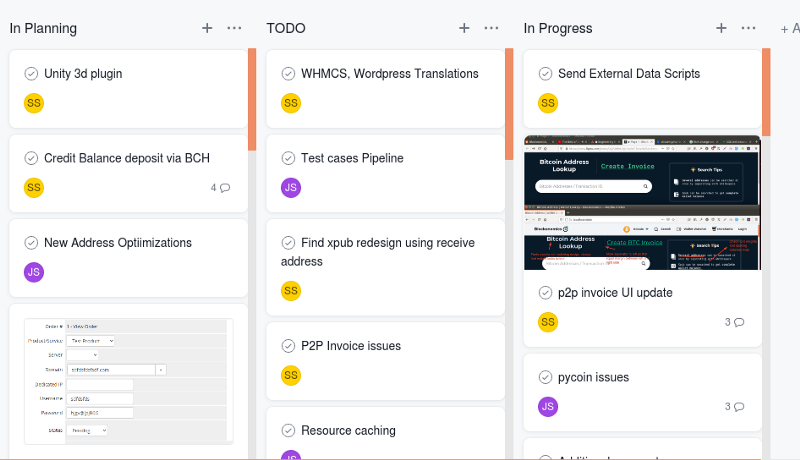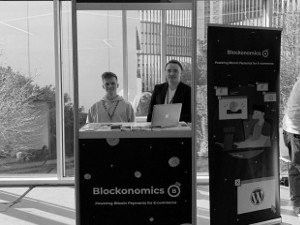Engineering Culture @ Blockonomics
At Blockonomics, we work to enable entrepreneurs to unlock the power of bitcoin while retaining their rights to full ownership of their…

At Blockonomics, we work to enable entrepreneurs to unlock the power of bitcoin while retaining their rights to full ownership of their funds. Here is a behind the scenes look at how we work, and what drives us to continue our mission:
Fully Remote and Decentralized
We have no office, and our team is spread across the world. Currently we have four people on the engineering team:
- CTO and Founder — India
- Lead Developer — Finland
- Senior Developer — South Africa
- Plugin Developer — India
Everyone works in their own timezone. Some of our team members go to co-working spaces a few days per week. Some like to work completely from home. Some like to work while backpacking!
All salaries are paid in bitcoin. More information about our remote working culture can be found here.
No Sprints, Zero Meetings
All engineering tasks are planned and laid out on an Asana board. We don’t have any sprints or stand up meetings.
Every team members updates the board / pull requests with progress or thoughts. Any discussion, if required, are done via Slack.
We have zero meetings with the engineering team. We mostly work like open source projects, as it is more efficient for a team spread across timezones. This requires that product designers have to spend more time detailing what UI/feature to built, instead of relying on verbal meetings to explain things. This also has a ripple effect that everyone has a consistent view of what the product is supposed to do.
Work Gets Done When Work Gets Done
As a profitable bootstrapped company, we do few things that might not be feasible for a VC funded company:
No deadlines
We don’t have any fixed timeline for completion of features/tasks. We have a rough roadmap for each quarter. Developers work at their own pace and things get done at their own pace. Sometimes tasks in the production server do require urgent intervention/patches, and those are done when necessary.

We don’t chase exponential growth
There is no pressure on us to exponentially multiply our traffic/user base. We also are in no hurry to add new features. We subscribe to the Grounding Product philosophy by Scott Belsky, and try to actively reduce feature bloat and make the product cleaner and better.
Lots of firms are afraid that if we don’t add say X features within the next month the customer/user base will leave. In fact, nothing is farther from the truth. Most customer will stick with you unless you really mess up your product. Some customer will jump to other products to save costs, or they actually do want lots of fancy features. In fact they did a favour by leaving, as the cost to keep them satisfied would eventually be more than the money they are giving you.
Engineer Team = Support Team
We don’t have an exclusive support team. Every engineer handles support tickets few hours a day. As we are spread across timezones, we can divide 24 hours across our team. This is a common practice among many customer-centric startups as it help engineers get a sense of what new features are really required and have empathy for customer pain points.
Supporting Open Ecosystems
Since we are based on bitcoin, we appreciate the value of free and decentralized ecosystems. All our e-commerce plugins are opensource on Github. We also strive to make Blockonomics as open and accessible as possible, so that other developers can build upon us. We have a free library of developer-related tutorials/videos.
WordPress is the best example of such an open ecosystem. We routinely sponsor Wordcamp events and engage with WordPress developers. We were co-sponsor at Wordcamp Kochi 2018 and Wordcamp Prague 2020

Above was a brief summary of the engineering work culture at Blockonomics. If this interests you, feel free to view current openings on our careers page.


![Top 10 Tools and Resources for Crypto Research [2021]](/content/images/size/w720/max/800/1-kDyyUnRCD656bm2ny-jHag.png)

Comments ()